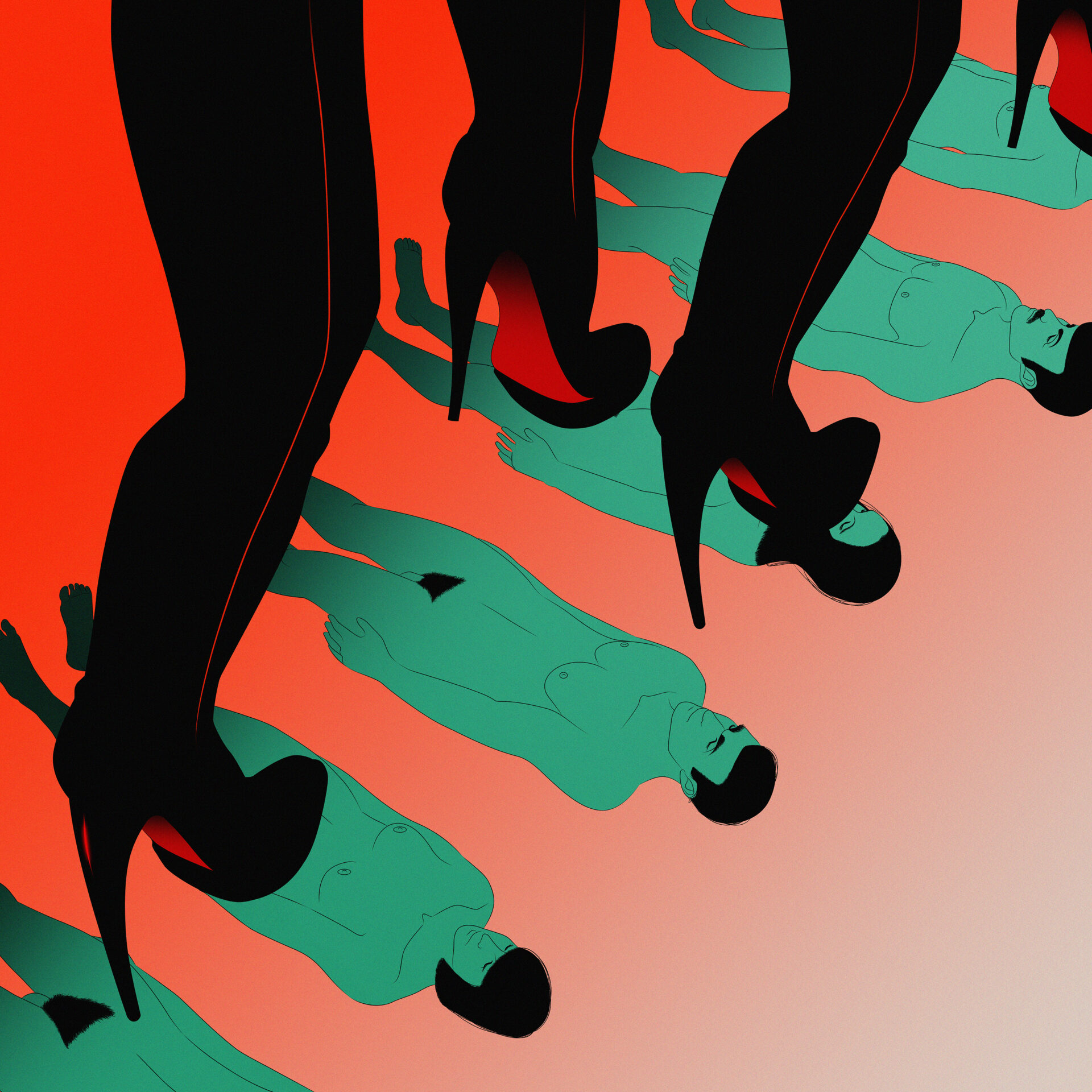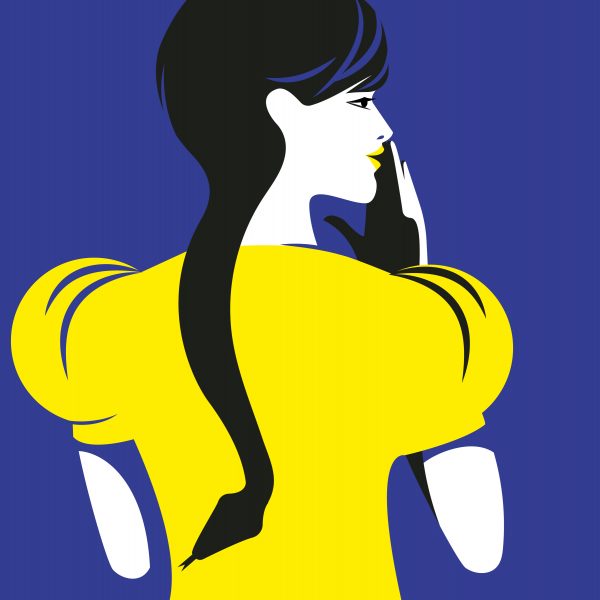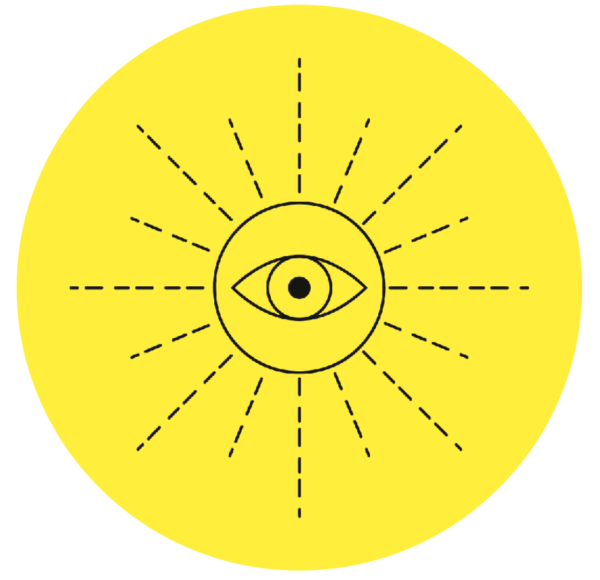Article by TWGE Redaktion
Mental Health in the Patriarchy: Challenges and Paths to Resilience
Our mental health is influenced by many different factors. Social and economic structures affect our psychological well-being just as much as gender-specific constructs. The patriarchy or the male-dominated society in which we live can contribute to an unstable mental state. Gender stereotypes, sexism, power imbalances, prejudices, and outdated expectations affect not only FLINTA* individuals but also cisgender men. Can we even maintain our mental health within the patriarchy?
The patriarchy, a social system that perpetuates male dominance and norms, has various effects on our mental health. Especially individuals who do not conform to traditional gender roles and stereotypes are still confronted with discrimination and stigmatization. Many individuals are under pressure to meet certain societal expectations, which can, in turn, affect their emotional health. But what expectations does the patriarchy have for society, and what outdated norms must individuals conform to in order to function reasonably well in this system?
The Issue of Beauty Norms: Is #PrettyPrivilege Real?
Young, beautiful, and slim. Unattainable beauty ideals plunge all genders into self-doubt and insecurity. The pressure to always look beautiful is particularly high among the younger generation. Social media platforms like Instagram or TikTok amplify this trend, bombarding young people daily with unattainable and unhealthy beauty standards. That’s why the number of cosmetic surgeries performed, such as nose jobs, breast augmentations, or lip fillers, is steadily increasing. The age of patients undergoing beauty procedures has significantly decreased in recent years. Eating disorders are also a consequence of excessive focus on body image, beauty pressure, and the obsession with thinness. Here too, younger individuals seem to be increasingly affected, often between the ages of 11 and 18.
The hashtag #PrettyPrivilege has been circulating on TikTok for some time now. It discusses the advantages and privileges that people can enjoy due to their appearance and physical attractiveness. It is a social phenomenon where people perceived as attractive are often favored and treated better in various aspects of life. People with “Pretty Privilege” often have easier access to potential opportunities and advantages in both their professional and personal lives. Studies have shown that attractive people tend to earn higher salaries, are more successful in the workplace, and are perceived as more competent.
@thevanessairene Signs you have pretty privilege ?#prettyprivilege #signsyoureattractive #signstheylikeyou #relationship #feminine #dating #attractionpsychology
#Heteronormativity
Heteronormativity describes a social order system that accepts only two genders. These two genders are hierarchically ranked, with masculinity being prioritized over femininity. Heteronormativity also assumes alignment between one’s biological and psychosocial gender and the (heterosexual) desire for the opposite gender.
Heterosexuality is still considered the norm or “normal” in our society. It is not just common but also seen as the societal standard. Because it is mostly expected or even assumed, it doesn’t need to be explained. The situation is different for homo- or bisexual individuals. Even though legal equality and anti-discrimination efforts for homo- and bisexual individuals have been progressing (to some extent), their sexuality still appears to deviate from the common societal norm, which, unlike heterosexuality, often needs to be “explained.” This leads to the exclusion of individuals who do not conform to this order, which can have negative effects on their mental health. This includes bisexuals, lesbians, gays, trans* individuals, and non-binary people.

The Patriarchal Family Ideal: Marriage, Home, and Children
The institutionalized romantic relationship (marriage) is still considered a societal norm. Eventually settling down – preferably with a house and children – still seems to be the ideal for many in terms of a happy and fulfilling life. Even though these structures are gradually breaking down and changing within the younger generation, the image of a harmonious and happy family is still widespread. Individuals who do not aspire to this ideal, such as those who do not want children, do not want to get married, or do not want to commit to a partner for the long term, are often questioned in their choices or not taken seriously by society.
Interestingly, studies show that the mental health of men tends to improve in marriage, while that of women tends to deteriorate. Romantic relationships and their dynamics can contribute to conditions such as depression, schizophrenia, anorexia, anxiety disorders, and borderline personality disorders. Marriage with men is therefore considered a risk factor for women in terms of the potential development of mental and psychological disorders.
Many authors, including Emilia Roig, call for the abolition of marriage. For Roig, marriage is a patriarchal institution that contributes to the perpetuation of gender inequalities. In her provocative book “The End of Marriage“, she portrays marriage as a crucial support for capitalism that keeps us locked into binary gender roles. Marriage normalizes relationships and family and controls our sexuality, property, and labor. According to Roig, the abolition of marriage would not only benefit women but also everyone. Only then do we have the opportunity to view and live love freely and on equal terms.
Patriarchy Exacerbates Mental Illness
Women, in particular, suffer from the consequences of patriarchy. The gender gap, with its many inequalities and injustices that women face due to existing patriarchal structures, is enormous. Women are more likely to experience poverty, earn less, receive lower pensions, or be more exposed to (sexualized) violence. Additionally, women take on a significant share of unpaid housework and care for the sick and family members. This male-dominated society makes women mentally ill. Compared to men, women are about twice as likely to suffer from depression. This and more are analyzed by Beatrice Frasl in her book “Patriarchal Stress Disorder.”
However, men are also affected by the consequences and structures of patriarchy. While mental illnesses are more frequently diagnosed in women, men are more likely to die from them. This is mainly because men seek help less often than women. Mental illnesses therefore often go unrecognized in men. Why is that? From a young age, many boys are taught a (toxic) concept of masculinity. They are supposed to be strong, suppress their emotional pain, and handle their suffering on their own. This leads to many men lacking an outlet for their pain in adulthood, resulting in fatal consequences. Increased aggression, readiness for violence, and alcohol abuse can accompany their behavior. It is therefore crucial for men to learn to talk about their feelings and seek help in times of crisis.
@freeda_en Men are victims of the patriarchy too as it disconnects them from their emotions, and frames seeking support as weakness. The patriarchy sucks for everyone! #Freeda #Patriarchy #Support #Emotions
Patriarchy poses risks to the mental health of all people. Discrimination and experiences of violence lead to FLINTA* individuals being particularly vulnerable to suffering from the consequences of patriarchy. This is why it is essential to acknowledge the impact of patriarchy on emotional health and to question gender stereotypes and binary gender norms. By actively promoting gender equality, dismantling patriarchal structures, and raising societal awareness about our mental health, we can create a more inclusive society where all individuals, regardless of their gender, can realize their full potential and strengthen their mental well-being.














